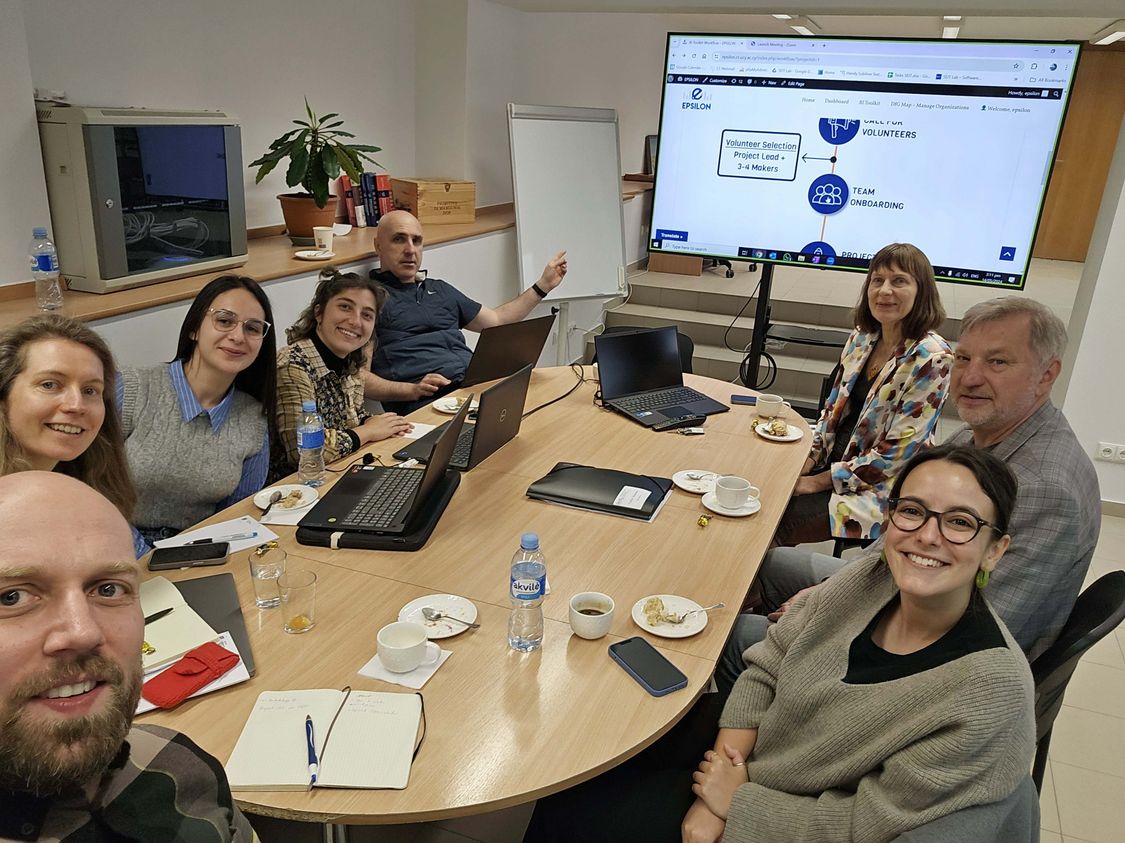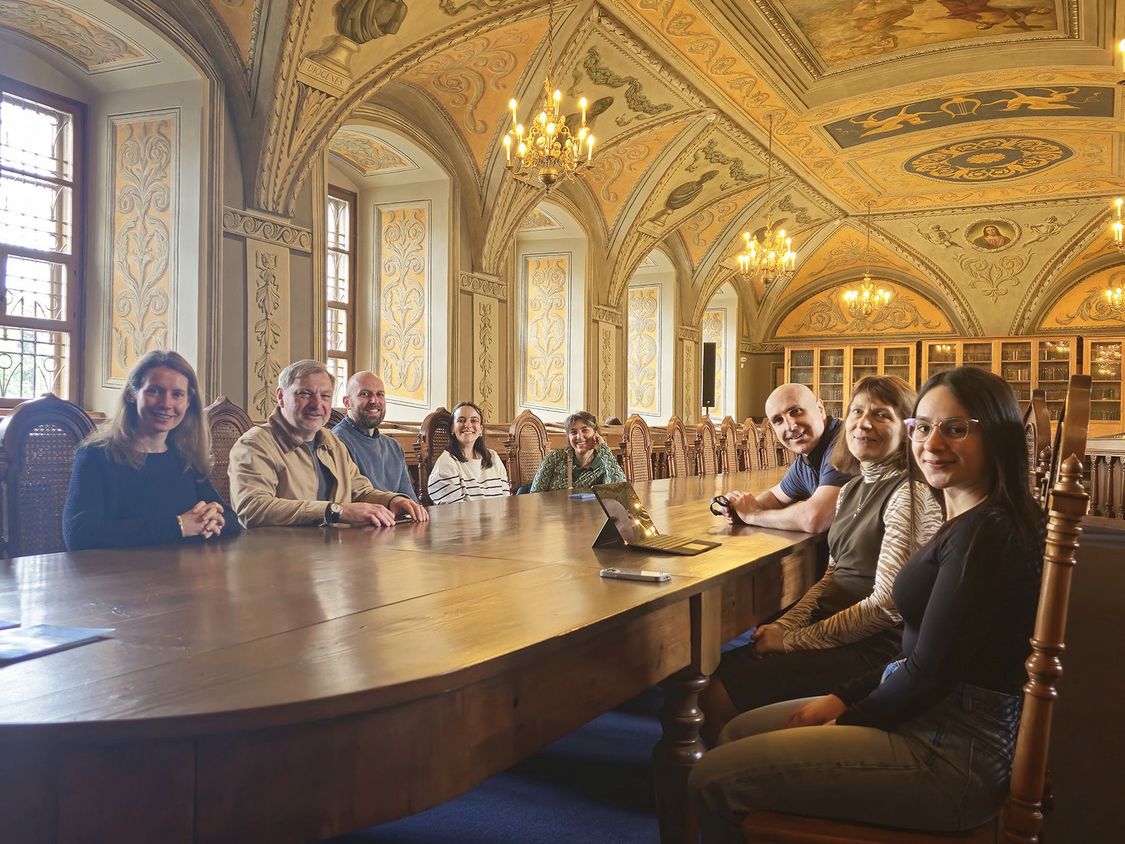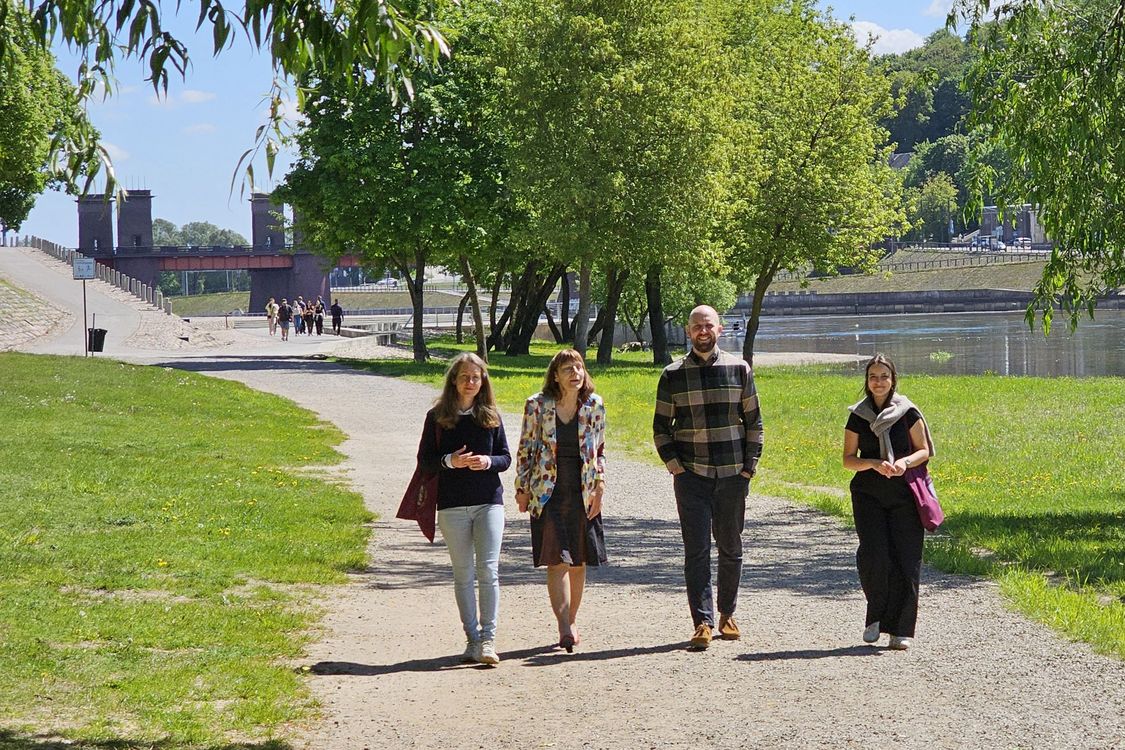
International team makes knowledge of data science accessible to non-profits
Data are a highly coveted good. Numbers and statistics can be used to deduce trends and developments, and to optimise processes. In order for non-profit organizations to benefit from data science alongside financially strong companies, data scientists are needed who are willing to make their expertise available to these organizations free of charge. To promote the work of these volunteers and data-for-good initiatives, the transnational project EPSILON, led by Harz University of Applied Sciences, offers a knowledge platform all about data science. The project partners from Germany, Portugal, Cyprus and Lithuania met up in Lithuania to reflect on what they have achieved so far and what is coming up next.
The results achieved with EPSILON are geared toward the needs of various target groups: It supports the work of European data-for-good initiatives, non-governmental organisations and volunteers. Universities that offer degrees in data science can also incorporate the results into their curricula. Since the project began in February 2022, the international team has devised work processes and tools that meet the target groups’ needs and established a European online platform where all the knowledge will be accessible, including in the form of instructional and learning materials. A new data-for-good initiative will also be established in Lithuania in the coming months.


The project team meets once a month for a virtual exchange. “However, this time is not always sufficient to present and discuss work results in detail,” says Project Coordinator Grit Lehmann from Harz University of Applied Sciences. During the two-day meetup in Lithuania, all participants had ample opportunity to present their progress and point out any challenges they are experiencing.
“Our Lithuanian colleagues, for example, are faced with the task of finding volunteers to make their knowledge available to charitable organizations.. Only the on-site meeting enabled us to fully understand the obstacles there,” explains Grit Lehmann. She adds that the project team was uncertain of the extent to which the topic of data science should be addressed in the learning and instructional materials that will be made publicly available on a knowledge platform. “We are endlessly grateful for the time together. Without it, we wouldn’t have been able to resolve the issues as quickly as we did.”
In addition to the professional exchange, the program also included a city tour, a museum tour and a visit to the university in the capital to experience the culture of the host country. “Everyone involved described the meeting as very pleasant, productive and successful,” says Ms Lehmann. “There was even the suggestion to have another in-person meeting before the project ends in January 2025. This time it will be in the Harz.”




However, for the project team at Harz University of Applied Sciences, led by Dr Philipp Schaller since the beginning of the year, there are two other events on the to-do list first. The first is an instructional and training event in late September where nine international students will visit the campus in Wernigerode to learn about data science for social good. “The participants will gain some initial experience in international cooperation, and learn about data science and the working methods of different cultures,“ explains Grit Lehmann. Students who are interested in participating in the event are welcome to contact her.
Later in the year, the project results will be presented to a broader audience. Dr Theo Berger, who oversaw the project in the first two years, will be available to the project team until its completion. The former project director was also excited to participate in the meetup in Lithuania.
The project EPSILON is financed by the EU as part of the Erasmus+ funding programme. In addition to Harz University of Applied Sciences, the partner universities are Nova School of Business and Economics of NOVA University in Lisbon, Portugal; the Software Engineering and Internet Technologies Laboratory (SEIT) of the Computer Science Department at the University of Cyprus; and the Institute for Social Sciences and Applied Informatics at the Kaunas Faculty of Vilnius University.
Get a feel for statistics and become a data scientist!
Are you interested in gaining knowledge from data? Then start a degree programme in the Faculty of Business Studies. The lectures on statistics will show you how to analyse and benefit from large quantities of data, such as in the Bachelor’s Degree Programme in Sustainable Management.
You can pursue continuing education at Harz University of Applied Sciences to get a direct education as a data scientist. The Master’s Degree Programme in Data Science at the Faculty of Automation and Computer Science is offered both as a full-time programme and as a part-time programme for professionals.
Apply with just a few clicks with the online registration portal.
13.06.2024
Author: Karoline Klimek
Image author: © Project EPSILON
Image rights: © Harz University of Applied Sciences
